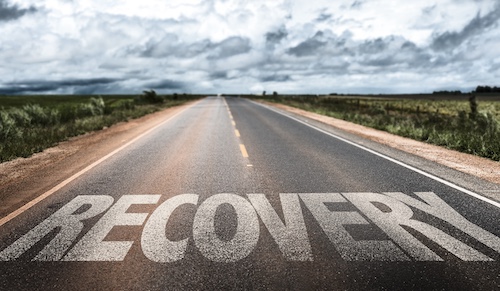Is Casual Drinking Becoming a Problem?
Casual drinking is common, but for some, it can quietly turn into alcohol addiction. What starts as an occasional drink after work or with friends can become a daily habit that affects health, relationships, and mental well-being. Understanding the early signs of alcohol addiction is important for taking action before the problem grows.
In this blog, we explain how casual drinking can lead to alcohol addiction, highlight key warning signs, outline common risk factors, and review effective treatment options available at our Raleigh alcohol rehab.
The Slippery Slope: From Casual Drinking to Alcohol Dependence
Even casual drinking can shift into alcohol dependence over time. This section explains how regular alcohol use can turn into addiction without a person realizing it.
Casual Drinking Starts as a Choice
Many people begin drinking alcohol in social situations. Having a few drinks with friends or during meals is common. For some, this drinking behavior remains occasional and controlled. They stop drinking after one or two drinks and experience no cravings or withdrawal symptoms.
Patterns Form Over Time
When alcohol use becomes frequent, habits form. A person may start to rely on alcohol to relax, sleep, or cope with stress. This repeated behavior can lead to alcohol misuse. Drinking alcohol becomes less about enjoyment and more about routine.
Tolerance and Increased Risk
As the body adjusts, it takes more alcohol to feel the same effects. This is known as building tolerance. People often ignore this sign, believing they are just handling alcohol better. In reality, tolerance increases a person’s risk of developing alcohol use disorder.
From Habit to Dependence
The line between habit and addiction is crossed when a person can no longer control their drinking. They may feel a strong urge to drink, even when it causes problems. At this stage, they may continue drinking despite health problems, legal issues, or damage to personal relationships. These are warning signs of alcohol addiction.
Alcohol Dependence Develops Quietly
Alcohol dependence does not happen overnight. It develops over time, often without obvious symptoms. A person may appear to function well but is actually experiencing withdrawal symptoms when not drinking. They may need alcohol to feel normal or avoid withdrawal symptoms like anxiety, sweating, or nausea.
Early Intervention Is Key
Recognizing unhealthy alcohol use early helps prevent serious consequences. If someone shows signs of alcohol addiction, they should seek help. Our Raleigh alcohol rehab offers support for those ready to stop drinking and change their drinking habits before the problem worsens.
10 Warning Signs of Alcohol Addiction
Alcohol addiction develops gradually. Recognizing the early signs can help prevent long-term damage to health, relationships, and daily life.
1. Craving Alcohol
A strong urge to drink is a key sign of alcohol use disorder. This craving can occur even when there is no social or personal reason to drink. It often interrupts daily tasks and becomes difficult to ignore.
2. Loss of Control
People with alcohol addiction often struggle to limit how much they drink. They may plan to have one or two drinks but continue far beyond that. This loss of control is one of the most common signs of alcohol addiction.
3. Experiencing Withdrawal Symptoms
When someone with alcohol dependence suddenly stops drinking, they may experience withdrawal symptoms. These can include sweating, shaking, anxiety, nausea, or trouble sleeping. This is a clear signal of physical dependence.
4. Tolerance Increases
Over time, it may take more alcohol to feel the same effects. This increase in tolerance often leads to higher levels of alcohol consumption, putting the person at greater risk for health problems like liver disease and high blood pressure.
5. Neglecting Responsibilities
Alcohol abuse often leads to missed work, skipped school, or ignoring family duties. As alcohol use becomes a priority, personal and professional responsibilities are pushed aside.
6. Risky Behavior
Heavy drinking can lead to unsafe actions. These may include driving under the influence, getting into fights, or unsafe sexual behavior. Alcohol intoxication often lowers judgment and increases safety risks.
7. Damaged Relationships
Alcohol addiction can hurt personal relationships. Friends and family may notice changes in mood, increased anger, or social withdrawal. These issues can lead to arguments and loss of trust.
8. Ignoring Negative Consequences
Continuing to drink despite serious problems is a strong warning sign. This includes drinking even when it causes health issues, legal trouble, or problems at work. These behaviors often point to a moderate or severe alcohol use disorder.
9. Physical Dependence
Some people need to drink alcohol to feel normal. They experience discomfort or distress when they do not drink. This physical dependence shows that alcohol use has moved beyond habit.
10. Failed Attempts to Stop Drinking
Trying to stop drinking without success is common in people with alcohol addiction. They may promise to quit or cut back but find themselves returning to unhealthy alcohol use. This pattern is a strong sign that professional help may be needed.
Risk Factors and Co-Occurring Conditions
Certain factors increase the chance of developing alcohol addiction. Mental health problems and life experiences often play a role in alcohol use disorder.
Early Age of Drinking
People who begin drinking alcohol at an early age have a higher risk of developing alcohol dependence later in life. Early alcohol use can affect brain development and increase the chances of forming unhealthy drinking habits.
Family History
A family history of alcohol abuse or substance use disorder raises the risk of addiction. Genetics and learned behavior both contribute to this pattern. Children of parents with alcohol problems are more likely to develop alcohol use disorder themselves.
Mental Health Problems
Many people with alcohol addiction also struggle with mental health problems. Depression, anxiety, and bipolar disorder often occur alongside alcohol use disorder. These conditions may lead someone to drink in order to cope with symptoms.
Post-Traumatic Stress Disorder (PTSD)
PTSD is strongly linked to alcohol misuse. People with PTSD may use alcohol to manage stress, flashbacks, or emotional pain. This can lead to regular alcohol use and, over time, alcohol addiction.
High Stress or Trauma
Stressful life events, such as divorce, job loss, or abuse, can increase the risk of alcohol misuse. Some people begin drinking heavily to escape difficult emotions or avoid withdrawal symptoms from stopping alcohol use.
Other Substance Use
People who misuse other drugs are also at greater risk for alcohol addiction. Substance abuse often occurs with alcohol consumption, increasing both mental and physical health risks.
Lack of Support
A weak support system can make it harder to stop drinking. Without family, friends, or community support, people are more likely to continue unhealthy alcohol use. Isolation can also worsen symptoms of alcohol addiction and other mental health problems.
Treatment Options for Alcohol Addiction
Alcohol addiction is treatable. Several evidence-based methods are available to help people stop drinking and manage withdrawal symptoms safely.
Behavioral Therapies
Behavioral treatment helps people change their drinking behavior. It focuses on building coping skills, managing triggers, and setting clear goals. Common methods include cognitive behavioral therapy and motivational interviewing. These approaches are often used in both individual and group settings.
Alcohol Counseling
Alcohol counseling provides structured support through regular sessions with a licensed mental health professional. Counselors help patients understand their drinking habits, develop new routines, and prevent relapse. Counseling can also address other mental health problems linked to alcohol use disorder.
Medication-Assisted Treatment
Certain medications can help reduce cravings and avoid withdrawal symptoms. These medications include naltrexone, acamprosate, and disulfiram. A healthcare provider can help decide if medication-assisted treatment is right for the patient based on their symptoms and health history.
Medical Detox
People with physical dependence often need medical supervision during detox. Alcohol withdrawal can lead to serious symptoms such as seizures or high blood pressure. A detox program provides safety, comfort, and medical care while the body adjusts to the absence of alcohol.
Mutual Support Groups
Programs like Alcoholics Anonymous offer peer support for people working to stop drinking. These mutual support groups create a structured environment for sharing experiences and staying accountable. Many people find long-term success with help from these communities.
Co-Occurring Disorder Treatment
Some individuals have both alcohol addiction and other mental health disorders. This is called a co-occurring disorder. Treating both conditions at the same time increases the chances of recovery. Integrated care may include therapy, medication, and support groups.
Personalized Recovery Plans
Each person’s situation is different. Effective treatment depends on the severity of alcohol use disorder, physical health, mental health, and support network. At Carolina Recovery’s Raleigh alcohol rehab, we offer personalized plans that combine therapies and services to fit each person’s needs.
Consult With Carolina Recovery About Your Journey to Recovery ASAP!
If you or someone you care about is showing signs of alcohol addiction, taking action now can prevent serious long-term health and personal consequences. At Carolina Recovery in Raleigh, our experienced team offers evidence-based treatment and personalized support in a safe, professional environment. Whether you’re dealing with early symptoms or more severe alcohol dependence, we’re here to help you regain control.
Contact us at (812) 408-8842 for a free consultation today!







